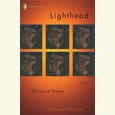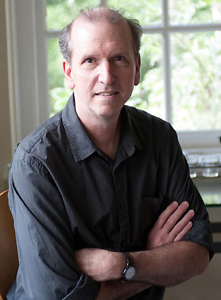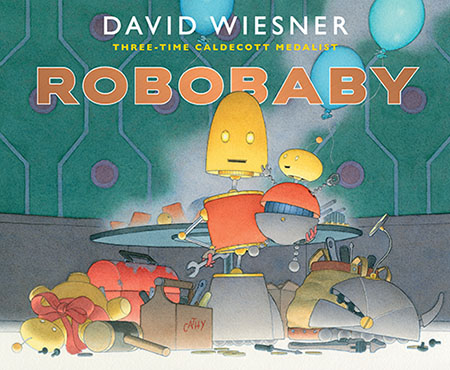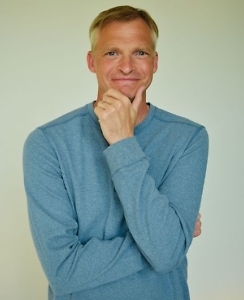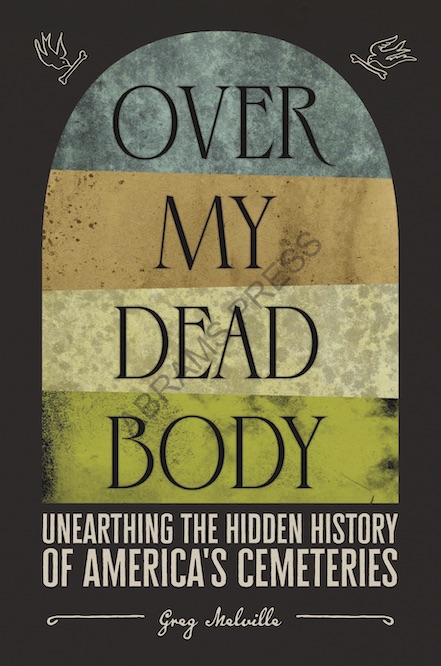An All-American Movement
Charles Euchner captures the moment when white America began to understand the justice of civil rights
Martin Luther King Jr.’s “I Have a Dream” speech, which he delivered from the steps of the Lincoln Memorial during the 1963 March on Washington, is widely considered among the greatest speeches in American history and a high point of the civil-rights movement. But its deserved fame has long obscured the hundreds of thousands of people who also participated in the march: black teenagers from Alabama, white ministers from Kansas, celebrities from Hollywood, and activists from Harlem, all of them gathered in a peaceful demonstration for equal rights unlike anything ever seen in America. InNobody Turn Me Around: A People’s History of the 1963 March on Washington, newly out in paperback, Charles Euchner, a Chattanooga native and graduate of Vanderbilt University, has written the story of that day from the perspective of these important, if anonymous, participants in the march. Chapter 16 recently spoke with him by phone.
Chapter 16: Your book is subtitled “A People’s History of the 1963 March on Washington.” What is a “people’s history”?
Charles Euchner: One of my motivations was to recapture the day for the people who made it what it was. We’ve all heard that it was about King’s speech. I love that speech; I’ve probably heard it a hundred times. So I’m not trying to lower King’s role. But there were 250,000 people on the Mall; there were people who were behind the scenes, who made it all work. It wasn’t just one man’s event. In fact, King at first turned down the invitation.
Chapter 16: What goes into researching a “people’s history” that is different from the traditional archives-focused methods?
Euchner: I did a lot of that traditional archival work: I put in Freedom of Information Act requests; I found diaries and notes of people who were there. But I also interviewed about 120 people. They weren’t easy to find; one way I did it was to start with the many bus sign-up lists I found. Essentially I wanted to know who was there and why. The book is in my voice, but as much as possible I wanted to give the book over to the people who were there. Fundamentally, we have to think about how the civil-rights movement revolutionized the nation without war, in ways that elevate us all, and that movement came about because so many people put their lives on the line, opened their homes, risked themselves because they believed in something bigger. King would be the first to say it, would be the first to happily acknowledge that the masses in the trenches made the movement. One of the amazing things about him was that he was constantly learning, and that he was open to learning from below. The Montgomery Bus Boycott, for example, wasn’t originally about desegregating buses, but about equal treatment within the system. But the people at the bottom changed that and broadened it, and King was willing to do the same at the leadership level.
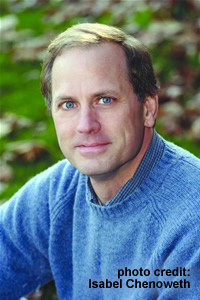 Chapter 16: What did you find that surprised you?
Chapter 16: What did you find that surprised you?
Euchner: The first thing was how different a country it was. Most people in the country were so isolated; we have no idea how locally isolated they were. These days we have the Internet, 500 TV channels, access to any newspaper we want in the world. We can get as much information as we can dream of. In 1963 most people got a skimpy newspaper, full of news on school lunches and Kiwanis Club meetings. Most people didn’t understand the civil-rights movement. Most had heard of it, but there was not much direct information. The evening news was only fifteen minutes long; CBS was the first network to expand to thirty minutes, which it did that summer. The reason this is so important is that, for the civil-rights movement to succeed, the whole nation had to see what a decent, hardworking movement it was.
When CBS decided to cover it live, and viewers saw sundresses, blacks and whites arm-in-arm, it was the first time the whole country was exposed to the movement. And seeing what they saw, no one could call it an angry movement. It was the first time many had heard King speak. Maybe they’d seen him on “Meet the Press.” But few had had the opportunity to hear one of his speeches from beginning to end. My belief when I started the book was that the day’s importance was King’s oratory, but when I was done, I realized it was also that people in the Quad Cities of Iowa and in the far districts of California could get a complete look at a movement that was calling them to uphold the nation’s values. The way this day portrayed the movement made it easy for the rest of America to accept it as an all-American movement.
Chapter 16: You’ve written about several different subjects, and your last two books were about baseball. Why did you decide to take up the March on Washington?
Euchner: I was born in 1960, and so I was only dimly aware of this stuff as it was happening, but I have understood my whole life how important civil rights was to this country. It was the last piece of unfinished business from the Founding. We all understand that the civil-rights movement was essential to getting beyond a fundamental wrong. It was something I always wanted to write about. It seems to me that the civil-rights movement succeeded in ways no other movement did because it tried to reconstitute the country by its own values, to square its values with its practices. It succeeded because men like [activist] Bayard Rustin—who has become one of my personal heroes—and people like [Urban League President] Whitney Young understood they had to use the strength of the country to improve it. They used fundamental American institutions to fix [the unjust parts] of it. I think those of us who love American history have to appreciate what that accomplished, not just for the United States, but for the world.
Chapter 16: You said just now that Bayard Rustin, one of the March on Washington’s central organizers, is now among your personal heroes. Why is that?
Euchner: The main reason is that Rustin had a value at the core of his being that he never compromised and that he made essential to the civil-rights movement, namely nonviolence. He didn’t invent nonviolence, but he was the one who made sure that it never got lost in the process. He was one of the founders of the Congress of Racial Equality, a nonviolent and integrated organization. One of the reasons he was so controversial, one of the reasons he was forced behind the scenes, was that he had refused to serve in World War II, and so he was easily tagged as un-American. But it was that same insistence on being nonviolent that was so central to the movement’s success.
Rustin understood that nonviolence was not only a moral stance, but also a strategic and tactical one. He knew that for minorities seeking change, there were two things they had to do: win hearts and minds and understand that ordinary people have the power to bring about change to an unjust system. That’s what nonviolence is: an unwillingness to participate in an unjust system. Even the most despotic regime depends on the consent of the people it is oppressing. If you willingly take part in the system, then you are consenting to an unjust regime. Rustin understood that you can withdraw your consent, and the regime crumbles. That spirit got infused in the movement until the mid-1960s, when it crumbled.
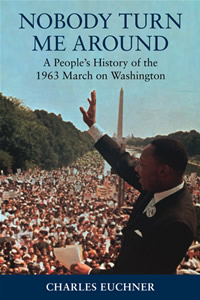 Chapter 16: What happened then?
Chapter 16: What happened then?
Euchner: Bayard Rustin put his finger on it: when the March on Washington was over. Some people wanted to keep the March on Washington organizing committee together. But Rustin realized that wasn’t going to happen. The movement had kind of run its course: once landmark civil-rights laws were enacted, the very character of speaking up for the people changed. The movement had had to be noncompromising. It was fighting for a nonbargainable thing. The right to vote, the freedom to assemble—those things cannot be compromised. The energy in the movement came from the conviction and commitment to noncompromise. It was an incredible moral energy.
But as Rustin pointed out, once you win universal rights, things shift to a plane of bargaining. After 1964-1965, the movement shifted—as it should have; this is not a lament—to ensuring that blacks got a piece of the pie. Over the next several decades, the civil-rights movement shifted to the realm of public policy, which is very much a negotiable thing. The moral power is not as strong; it’s not an issue of basic rights any more. In the new phase of the movement, much more could be bargained in good conscience. You can’t bargain over the right to vote. But you can bargain in good conscience over, say, Head Start money.
Chapter 16: You spent part of your childhood in the South, and you later went to Vanderbilt. Did that Southern connection inform any of your interest in civil rights?
Euchner: I was born in Chattanooga, though I grew up in Pennsylvania and New York. When I was growing up I was always curious about where I was from, and that’s one reason why I went to Vanderbilt. I was fascinated by the concept of the New South. Jimmy Carter was running for president, as a Southern progressive, and it was a fascinating idea that the South was changing.
I remember as a kid, when my mom pulled out the scrapbook, seeing a brochure from the hospital where I was born, and being struck by the language of “the white ward” and “the colored ward.” I had pneumonia as an infant and had to go back to the hospital, and I always wondered what would have happened if I had been black: would I have received the same level of care in the colored ward? It made me think about how enduring the legacy of segregation was. I don’t want us to get stuck in the past, but it’s important to understand the legacy of history. When I went to Vanderbilt, one of the great things I experienced was learning to appreciate how complex the South is. It’s often stereotyped, but it’s a beautiful place. In some ways it’s more progressive racially than the rest of the country.

